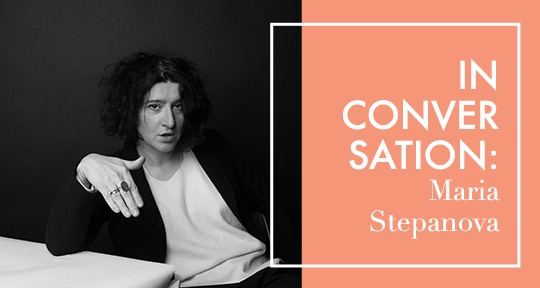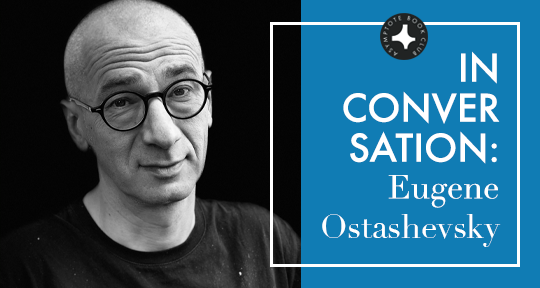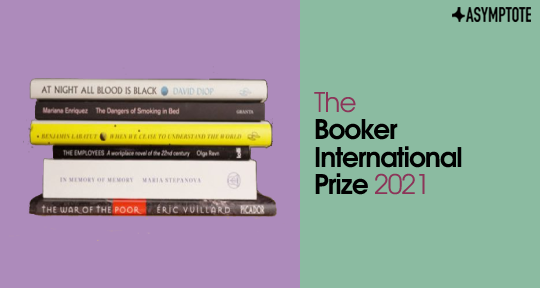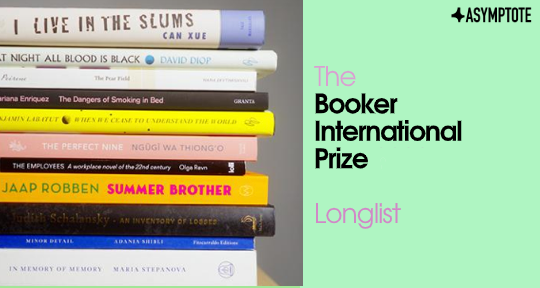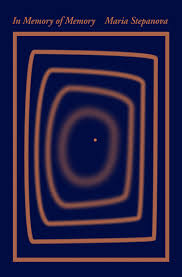Maria Stepanova’s award-winning work, In Memory of Memory (2021), translated into English by Sasha Dugdale from the Russian original Pamiati, pamiati (2017), seamlessly blends transnational history, private archives, and memoir-in-essay—an oscillation beyond autofiction that the nonfiction reader in me had previously thought impossible. Also embedded in the novel are texts from various sources—from Phaedrus to Paul Celan, Heraclitus to Thomas Mann’s diaries, Orhan Pamuk to Nikolai Gogol—blended smoothly in Stepanova’s sinuous prose.
Already an author of ten volumes of poetry, Stepanova’s debut was described by Dmitry Kuzmin as a display of “brilliant poetic technique and a purity of style.” Now, known as a chronicler of her Russian-Jewish lineage, Stepanova had written: “I would become a stranger, a teller of tales, a selector and a sifter, the one who decides what part of the huge volume of the unsaid must fit in the spotlight’s circle, and what part will remain outside it in the darkness.” She is now widely regarded as both an important and popular contemporary writer—or in the words of Irina Shevelenko, “one of the most original and complex poets on the literary scene in Russia today.”
In this interview, I asked Maria about the genre-defying In Memory of Memory, political poetry since the Silver Age of Russian literature, and the literary tradition of folktales.
Alton Melvar M Dapanas (AMMD): In a previous interview, you spoke about being an eyewitness to a generation of writers who “were traumatized by the crash of the Soviet system of literary education and literary work,” stating: “You could live for three years after publishing a book, but it had to be a bad book, because it was the result of an inner compromise.”
Can you speak on that moment in time—when literary bureaucracy and censorship was prevalent, when Social Realism and traditional genres and forms were requisite, and at the same time, artists thrived?
Maria Stepanova (MS): Well, it was not exactly a good time from an artist’s point of view, as practically all the significant writers—not even mentioning the really big names—were pushed into the margins by this system. Some of them were killed, some jailed, some scared into silencing themselves, some forced to start writing in a “normal” realistic mode. And there are a couple of individuals who were appreciated by the Soviet system; though heavily censored, they were published after a lifetime of fear and loss, like Akhmatova—whose first husband was killed, third husband died in jail, and only son spent years and years in the concentration camps. It was long before the 1990s, but the Soviet utopia of Writer’s Unions, those big honorariums and that enormous audience, was actually shaped in the 1930s, over the backdrop of so many deaths, and it never transformed into anything that would allow arts or artists to thrive. Even later on, when the times became more or less vegetarian, there was an enormous split between independent culture and the official, “publishable” one that appeared in state-funded exhibition spaces or in bookshops. If you were willing to make an official career out of writing, you had to prepare yourself for the lifetime of compromises—to agree that your writing would get cropped and reshaped according to the Party line. But, of course, the benefits were significant, and the life of an underground author was not the easiest—still, the most interesting poetry and prose being written in Russia in the twentieth century were produced by the authors who had chosen such a life, who were writing “v stol”: unpublishable books that were kept in the desk.
It’s important for me to say it, banal as it is, because lately, one might hear people referring to the Soviet times with some weird sort of nostalgia; as if the books we are able to read and quote now were a result of that system, and not a desperate attempt to resist it. The very names of the writers who had perished or were silenced in the 1930s (or remained in danger and unpublished in the 70s and 80s, until the Soviet empire crashed) are used as showcases for how an oppressive society might produce great works of literature. It somehow reminds me of the way ducks are tortured to produce foie gras: the amount of pain involved in the process is unjustifiable, whatever the results are. READ MORE…

